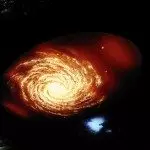[Originally published as What am I again?]
Every couple of years, I spend a little bit of time trying to think of what to call myself and my position. Sometimes it’s inspired by insulting names other people try to pin on me, and other times it’s inspired by genuine attempts to classify creationists by recognizing the “really important” distinctives. I’m inspired this morning by a short piece in a recent BCT newsletter from Stephen Lloyd, where he suggests this:
More recently I have come up with: ‘Adam from the Beginning of Creation’ (ABC). This has the advantage that the terminology is all biblical (and avoids the ‘ism’ of ‘creationism’ which is more a sociological label). It also closely echoes the word of Jesus himself (Mark 10:6). … Making sure the order of events – Adam or death first – is correct (i.e. the chronology) is crucial for Christian theology. What do you think of ABC? We would love to hear your views!
My view? Eh. I’m not wild about “ABC,” to be honest. I guess it just strikes me as inelegant. Am I an ABCist? That doesn’t really roll off my tongue like “creationist.” And I think it’s a bit too general. Talking about “the ABCs” of a subject is a very common idiom. This name strikes me as more of a mnemonic or sermon illustration like the “Seven C’s of Creation.” Sorry, Stephen. It’s nothing personal of course.
What else is there? Other names have pros and cons.
I default to just plain “creationist,” like we’ve been for years.
It contrasts nicely with “evolutionist,” and it encapsulates what I consider to be a rather crucial difference (i.e. evolution vs creation as mechanisms of origin).
The disadvantages are numerous.
For one, textbooks still define creationist as one who thinks that God pretty much made everything just like we see it only thousands of years ago. So it’s species fixity, which is definitely not my position.
Another disadvantage is that there are some individuals in the wake of the founding of BioLogos who also want to be thought of as creationists, so they call themselves “evolutionary creationists,” in the sense that they think of evolution as God’s mechanism of creation. Darrel Falk prefers this term. I use it for his sake, but reluctantly and clumsily and irregularly.
I find my visceral response to “evolutionary creationist” to be mostly territorial. “Creationist” is our word, and it absolutely refers to the mechanism by which God made the world. You can’t just redefine it to mean some common confession of ultimate origin. That’s a completely different use of the word. My territoriality makes me feel kind of gollumish, grabbing at my precious, but maybe it shouldn’t.
Creationism is our word, and you can’t have it!
There’s also been a trend among certain ID proponents to turn “creationist” or “creationism” into a pejorative to be avoided.
About ten years ago, I got an anonymous peer review for a paper I had written that said that I was wrong to use the word “creationism.” I found that comment especially hilarious since it was a paper submitted to the International Conference on Creationism. So I just rejected that suggestion and used the word anyway.
This whole maneuver I find very distasteful, mostly because they seem to be trying to distance themselves from me, a creationist. If I’m an insult to you, you should just get over yourself. I now try to use “creationism” and “creationist” as often as possible, since I know it annoys people like that.
Next, we have efforts to single out what sort of creationists we are.
First, there are “young earth creationists” that are distinct from “old earth creationists.”
This is where I start getting nitpicky. First of all, the earth isn’t young. Multiple millennia makes a thing old in my book. So the “young” of “young earth creationism” only makes sense in contrast to the “old” of “old earth.” The same would hold for similar names like “young age creationist” or “recent creationist.” They only make sense in contrast to the view with which I disagree.
So I use these names mostly from cultural recognition. Inside, I’m mildly annoyed that I have to define my position only by reference to the wrong answer. Bleh.
There’s also the question, What exactly is young?
I don’t think the earth by itself is young. I think everything is young, universe too. That seems to be what Genesis 1 describes on the fourth day of creation when God made the sun, moon, and stars. So I’m not just a young earth creationist. “Young age creationist” is the best I’ve heard that encompasses everything without having to spell it all out.
Despite its disadvantages, “young age creationist” is still what I usually identify as when pressed. I use “creationist” for short. Some people don’t understand it, and some people think it’s undignified.
But nothing’s perfect.
There’s enough comprehension of the term that it communicates fairly well when I use it. Often, I find people are surprised to find a creationist who believes in such-and-so, probably because they don’t know many real creationists.
I’m also not a huge fan of other suggestions I’ve heard:
- “Neocreationist” – Kurt Wise used this in the ’90s to distinguish model-building creation scientists from the more apologetics-minded folks. Then Eugenie Scott used the same term to describe ID advocates, and now there’s even a Wikipedia page that defines neocreationism that way. RIP.
I admit I was never a huge fan of that, especially as I’ve gotten older. I’m not eager to draw boundaries within the broader creationist movement. It’s bad enough that they exist. I don’t have to wave the flag and draw attention to them. - “Scientific creationism” – This was the name popular in the ’70s and ’80s. It was meant at the time to be a quasi-“secular” approach, where you could discuss purely scientific evidences that might support creationism without reference to the Bible.
I do not like omitting the Bible from my work. Frankly, I think it’s a terrible idea. Enough time has passed that I think most people wouldn’t recognize the original usage of the term, but it still has the effect of implying that theology and the Bible are not considerations when they really are important considerations to me. - “Biblical Creationism” – The counterpoint to scientific creationism; namely, looking at the evidence for recent creation from the Bible. Again, the origin of this term has faded with time, and now I think most people would think of this term like they would think of “biblical worldview.”
In other words, there’s something uniquely biblical about a particular version of creationism or a particular worldview. Lately, I’ve become increasingly uncomfortable with the adjective “biblical” to describe anything that’s inferred from an interpretation of the Bible, because that interpretation, however sensible it might seem, could be mistaken. I also don’t like the implied exclusivity of the term, as if anyone who disagrees with me isn’t really biblical. That’s not good. That’s arrogant. - “Biblical literalist” – This borders on an insult, and I honestly don’t consider myself a “literalist.” Usually, this name comes from people who think I’m being a hypocrite if I insist on young age creationism but don’t stone disobedient children or destroy cities of Canaanites or some other strange idea.
I actually think there’s something to this point. Any literal interpretation of Deuteronomy 18:18-21 would have to conclude that there was a law in Israel that allowed for a deliberately rebellious son to be executed by stoning. There are other hermeneutical considerations that I think mitigate against practicing this particular commandment, just as I don’t practice the kosher food laws or celebrate Jewish feasts, but those considerations are not based on a literal interpretation of Deuteronomy.
So I actually kind of think there’s a point to this insult, and I don’t like the confusion of calling myself a “biblical literalist,” even if someone like Joshua Moritz could give a meaningful exposition of what it is to be a literalist. - “Chronological Creationism” – This is another of Stephen Lloyd’s suggestions and it’s meant to emphasize the importance of the order of events in the creation-fall-redemption narrative of Scripture. I think the point is well taken and a good exposition of important issues in modern creationist thinking. I also think the name is at best OK but unfamiliar. And it doesn’t fully capture everything I’m about, which is more than just chronology.
- “Theodicic Creationism” – This is another recent name for creationists who are concerned especially with the origin of death and evil, which is a hallmark of creationists. Meh. At the time I didn’t like the idea of coining a new term to describe a huge array of creationists, but I’ve softened to that idea over the past decade.
I’m still keen to describe myself well and accurately, but I’m less enthusiastic about building walls and burning bridges. I’ve done too much of that already. And what even is “theodicic?” Yes, I know what it is, but most people have no idea what a word like that means. Names should illuminate, not confuse. - “Dogmatic Creationism” – Another new one, this time from Hans Madueme. His emphasis as I understand it (and he will correct me if I’m wrong) is that the theological importance of the young age position is sufficiently high that we should not abandon it even if we don’t have all the scientific questions figured out. So it’s “dogmatic” in the good sense of something we ought to believe by faith rather than the bad sense of being unreasonably or irrationally stubborn. That’s fine, as far as it goes, but I want to go further. I want to explore how God’s Word and God’s world hang together in a single, unified understanding. I want my dogma to lead me to new understanding.
- “Native creationists” – This was a cute idea I had last year to describe what I thought distinguished people who grew up after Whitcomb and Morris’s The Genesis Flood from those who came before. It makes an interesting point about cultures and the different sorts of concerns people have when we grow up with a position rather than convert to it. It’s not very descriptive of my position though, so I don’t think it’s very suitable for a general title.
- “New creationism” – This is from Joel Duff but also from Paul Garner’s book of the same name. It’s kind of a reboot of Kurt Wise’s “neocreationism,” because Joel thinks that there’s a new wave of creation researchers who are markedly different from other creationist advocates.
Again, I’m not wild about drawing a line in the sand, and I’m not real comfortable with the focus Joel wants to emphasize. But when it comes down to the name itself, I think it makes a fine book title, but only insofar as it makes me want to know what’s new about this creationism (and therefore read the book). It doesn’t actually tell me what’s new. - “Intelligent interventionist” – This was Leonard Brand’s suggestion. He was concerned about the fact that creation really only refers to the first six days. His views (like mine) are more broad than that, encompassing a real fall, a global flood, the recency of these events, and the possibility that God could (and will) intervene in a huge fashion to change the course of earth history.
I don’t think I’ve ever heard anyone use this other than Leonard. I also think it doesn’t really have the immediate name recognition as “young age creationist.” It’s definitely thoughtful though, but I’m just not sure I like it. That’s a lame reason to avoid it, I suppose - “Young earth evolutionists,” “fideist creationists” and other such insults. I think these are shameful and petty names. I’m certainly guilty of insulting people, and I’m sorry for that. But I think we should all (me too) strive to be better than this sort of name-calling intended to harm other people.
So “young age creationist” or “young earth creationist” it is. Those names are specific enough to distinguish a couple of really important distinctives (I’m concerned with creation and I think it’s not as old as lots of other people think), and they’re general enough to not pin me down to just one particular topic (chronology or theodicy). I still don’t have much else that really grabs me.
Rather than obsess over names, though, I think it’s better to describe in precise terms what I think being a young age creationist entails.
But that’s a post for another day.







